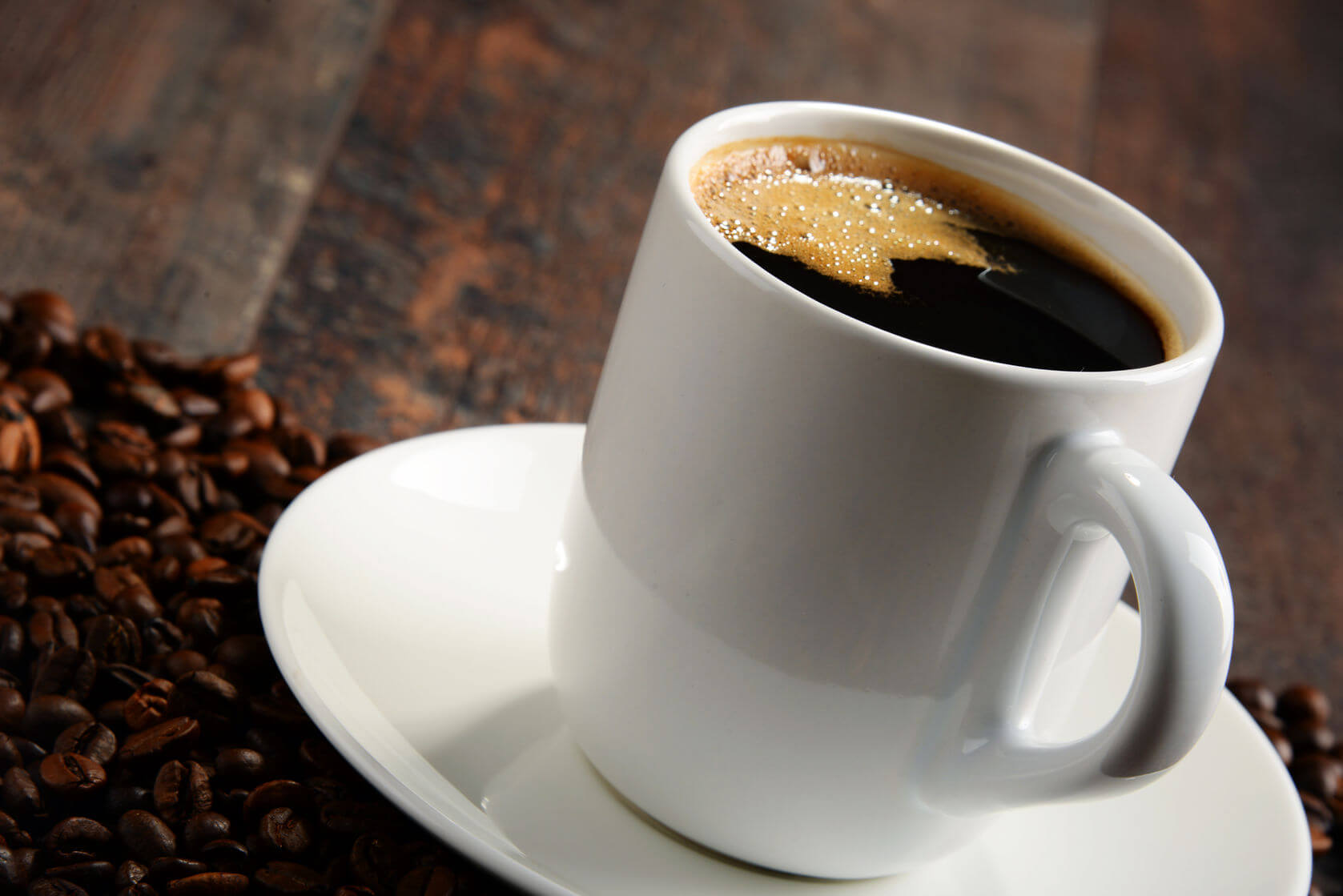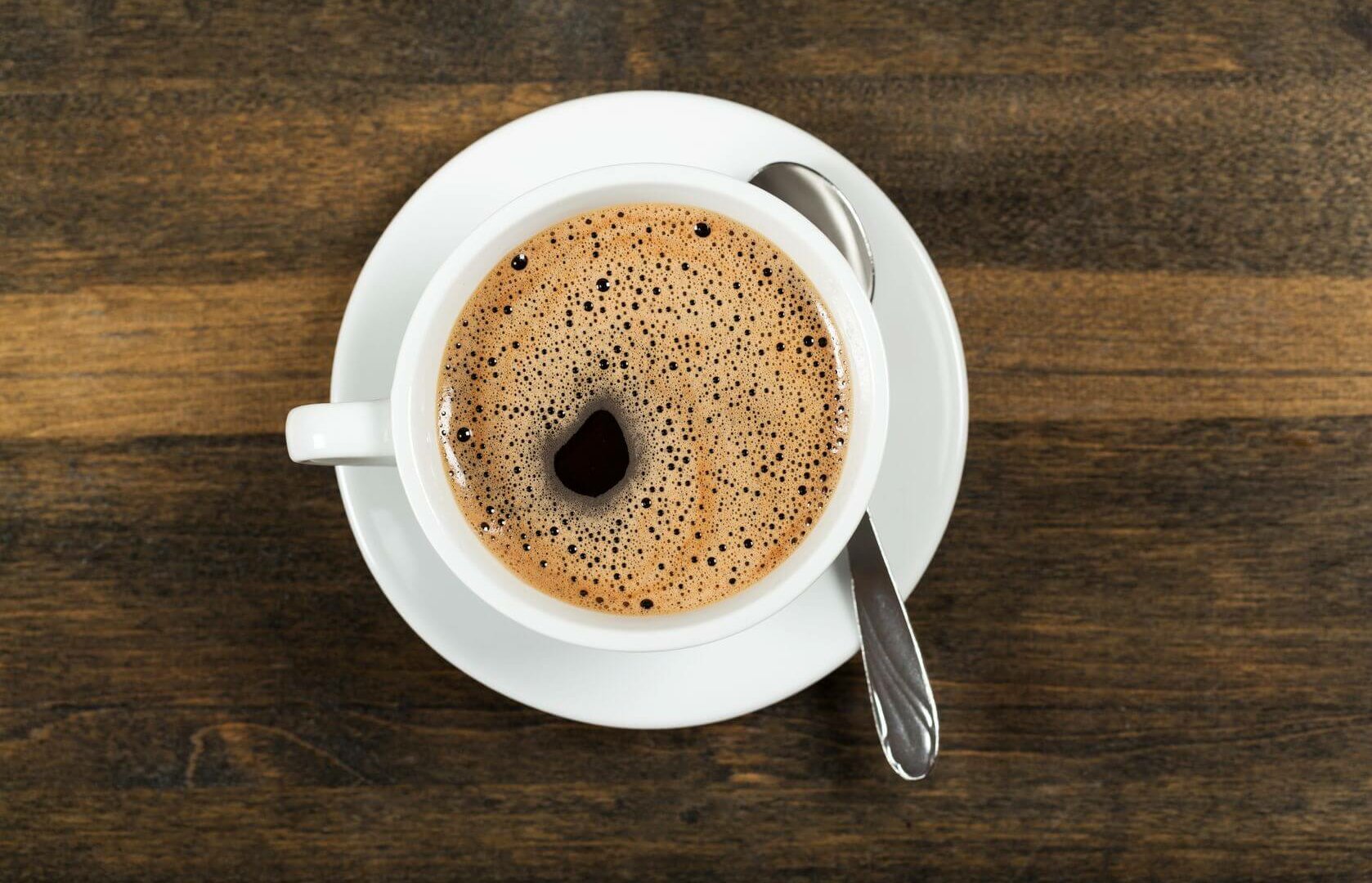Coffee presents us with a genuine embarrassment of riches. We know that caffeine improves
exercise performance and gives us an energy boost, and coffee is among the most enjoyable
ways to obtain it. Between its soothing aroma, bold flavor, and potential benefits for a variety of health outcomes, one must wonder, “What’s the catch?”
One dark day in 1998, a potential catch was proposed. In a controlled research study [1], Graham et al. sought to determine if coffee and/or caffeine enhanced running performance in endurance-trained participants. The results were quite surprising; caffeine capsules improved endurance performance, but caffeinated coffee did not. Further, subjects consuming decaffeinated coffee with caffeine capsules also failed to see a performance enhancement. In each of the treatments, caffeine content and beverage volume was exactly the same. As we know, there’s a whole lot more to coffee than caffeine and water; hundreds of potentially bioactive compounds abound in each delicious sip [2]. The authors speculated that one such family of compounds, collectively called chlorogenic acids, interfered with the performance-enhancing effects of caffeine [1], and there is some evidence indicating that such a mechanism is plausible [3].
And we bought it for over a decade. As recently as 2010, a published review [4] confidently stated that caffeine anhydrous was more effective than coffee for improving exercise performance. This was no fault of the authors of the review, as this isolated research finding stood unconfirmed, but unopposed, for years. Something just didn’t feel quite right about it. After all, one of the first studies documenting the endurance performance benefits of caffeine actually used coffee as the source [5].
Luckily, science is constantly evolving, and this research question was revived in 2013. Hodgson et al. [6] conducted a study investigating the effects of coffee and caffeine on time trial performance in male, endurance-trained cyclists and triathletes. The results reported by Hodgson et al. disagreed with those of Graham et al., with time trial results showing that both coffee and caffeine anhydrous improved cycling performance, with no difference between them. Shortly thereafter, I carried out a study [7] in recreationally trained males, in which coffee and caffeine anhydrous were compared in the context of high-intensity exercise. Neither treatment was consistently better than a placebo in terms of weightlifting outcomes, but both coffee and caffeine improved sprint outcomes to a similar degree. After my study was published, other authors found that both regular coffee and caffeine anhydrous mixed into decaffeinated coffee improved select weightlifting outcomes in comparison to a placebo, and both were slightly more effective that caffeine alone [8].

Finally, vindication for coffee, and relief for coffee and exercise enthusiasts worldwide. While the results of more current research suggest that coffee does, in fact, confer benefits for exercise performance, this does not mean that pre-exercise coffee will always be effective. There are some important aspects to consider when it comes to pre-exercise coffee ingestion.
First, there are the typical considerations that pertain to caffeine in general: some people
metabolize caffeine faster than others due to genetic differences, and other factors can influence the speed at which you metabolize caffeine, such as sex, dietary intake, alcohol consumption, and the ingestion of other prescription or over-the- counter drugs [9]. All these factors will influence the appropriate dose and timing of your pre-exercise caffeine ingestion, and how closely to bedtime you can get away with consuming caffeine. While these considerations apply to all caffeine sources, there are some additional consideration that pertain specifically to coffee. The caffeine content of coffee tends to be quite variable. While brewed coffee often contains around 100 mg per 250 mL serving [9], the exact amount can vary widely due to differences in the type of bean used, extraction time, roast style, brewing temperature, grind level, and the ratio of grounds to water used in the brewing process. Perhaps the best demonstration of this variability comes from a 2003 study [10], in which researchers bought a 16-ounce cup of Starbucks’ Breakfast Blend for six consecutive days. This was the same product, purchased from the same store, brewed under (one would speculate) extremely similar conditions, and the caffeine content ranged from 259 mg to 564 mg across the six cups purchased. That’s a pretty crazy amount of variation, even after most of the biggest sources of variation had been standardized!
So in terms of making this information useful, the following steps are helpful. First, determine
your general tolerance for caffeine; if you’re particularly sensitive, you’ll obviously want to opt
for a lower dose. In addition, try to get an idea of how rapidly you observe the effects of caffeine
after drinking your coffee. Due to differences in rate of metabolism, this won’t be the same for
everybody, but will generally peak around 30-90 minutes after ingestion [9]. As such, most
studies give caffeine around 60 minutes before exercise. Finally, pay attention to some of the
details in the coffee preparation process if ensuring an appropriate caffeine dose is important to
you. For instance, it would be prudent to consider the bean type, grind level, brewing method,
brewing temperature, and the ratio of grounds to water used in the brewing process. Due to
genetic factors, coffee might not be a performance booster for everyone, but these steps can
increase your likelihood of capitalizing on the performance benefits from your next delicious cup
of greatness.
References
- Graham TE, Hibbert E, Sathasivam P: Metabolic and exercise endurance effects of coffee and
caffeine ingestion. J Appl Physiol (1985). 1998;85(3):883-9. - Tunnicliffe JM, Erdman KA, Reimer RA et al.: Consumption of dietary caffeine and coffee in
physically active populations: physiological interactions. Appl Physiol Nutr Metab.
2008;33(6):1301-10. - de Paulis T, Schmidt DE, Bruchey AK et al.: Dicinnamoylquinides in roasted coffee inhibit
the human adenosine transporter. Eur J Pharmacol. 2002;442(3):215-23. - Goldstein ER, Ziegenfuss T, Kalman D et al.: International society of sports nutrition position
stand: caffeine and performance. J Int Soc Sports Nutr. 2010;7(1):5. - Costill DL, Dalsky GP, Fink WJ: Effects of caffeine ingestion on metabolism and exercise
performance. Med Sci Sports. 1978;10(3):155-8. - Hodgson AB, Randell RK, Jeukendrup AE: The metabolic and performance effects of caffeine
compared to coffee during endurance exercise. PLoS One. 2013;8(4):e59561. - Trexler ET, Smith-Ryan AE, Roelofs EJ et al.: Effects of coffee and caffeine anhydrous on
strength and sprint performance. European Journal of Sport Science. 2015:1-9. - Richardson DL, Clarke ND: Effect of Coffee and Caffeine Ingestion on Resistance Exercise
Performance. J Strength Cond Res. 2016;30(10):2892-900. - Guimarães-Ferreira L, Trexler ET, Jaffe DA et al. 19 – Role of Caffeine in Sports Nutrition A2
– Bagchi, Debasis. Sustained Energy for Enhanced Human Functions and Activity. Academic
Press; 2017. p. 299-319. - McCusker RR, Goldberger BA, Cone EJ: Caffeine content of specialty coffees. J Anal
Toxicol. 2003;27(7):520-2.

